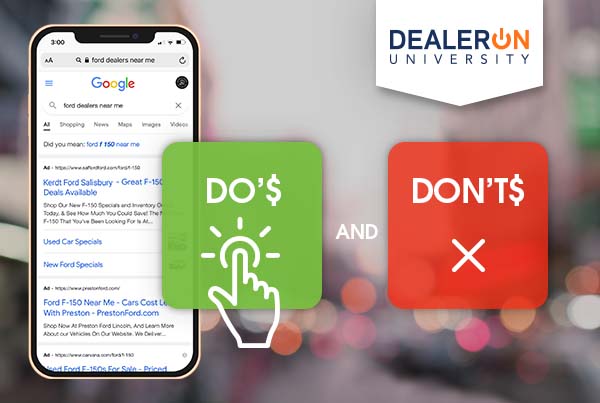

There’s a lot of wisdom out there about PPC advertising. But what commonly accepted “best practices” are actually going to end up costing you money? We’re going over some accepted truths that just aren’t true.

Don’t rely on Broad Match.
At first glance, Broad Match seems like a great idea for your keywords. It’s easier and will expand your reach. Unfortunately, without testing, you run the risk of diluting your search and attracting the wrong kinds of visitors. Research exact keywords to start, then use broad match to find keywords later on that you might have missed.
Ready to take your digital advertising campaigns to the next level?
Schedule a free demo and we’ll show you how!
Don’t rely on automated bidding.
This is another case where going with the easiest option wastes money. You need accurate data to feed into the ad platform before you can reliably use it to maximize conversions. Again, research and testing are your friends. Once you know what works, you can calibrate your bidding accordingly.
Don’t auto-accept recommendations.
Noticing a pattern yet? Going with the easiest solutions is never a good idea without the proper research.
The recommendations can add a ton of keywords, ads you had no hand in writing, broad match keywords you didn’t want, expansion to campaigns that you didn’t want to expand. All of these can broadly be useful, but in every case, you should be testing them individually to see how effective they are before implementing them.
Not every ad group needs the same number of keywords.
Most “best practices” PPC guides will give a specific number of keywords per ad group. Mostly because the real answer, that every ad group should be tailored specifically for its purpose, isn’t a guideline that an overworked business owner can just plug in and walk away from.
With an ad group, you have to keep in mind the intent of your ads, close variants with your keywords, and of course the data that’s driving the whole venture.
Don’t use SKAGs.
SKAGs, or Single Keyword Ad Groups, were briefly popular as a way to essentially corner the market on a keyword. While they can be attractive at first blush, Google has been trending toward more close variant keyword matching. This removes the efficacy of SKAGs, as the single keyword in that acronym is matching anything even close to it, making it impossible to lay claim to a single word.
Don’t automatically include search partners.
The default settings for both Google and Microsoft will make your campaigns appear in their respective search partners, like ask.com or DuckDuckGo. While this sounds great, any spike in traffic can cause a strain on a limited budget.
Keep your search and display campaigns separate.
You’ll get the option to combine them, but don’t. The networks have different purposes and you’re much better off crafting specific approaches for each one.
Don’t use every channel
Just because every channel is available to you doesn’t mean that every channel is useful to you. Target them individually and do your due diligence. Find out which ones work for your brand and use them accordingly.
All of these tips are dependent on research. You’ll need to do a ton of it. At DealerOn, our specialists know how all of these work with dealerships in mind.
More Articles From DealerOn University
-
- For customer experience, your website is only the beginning. These six tips will help improve your customer experience.
- Everything you need to know about the Google FLoC privacy update.
- Looking at EVs on the horizon.


